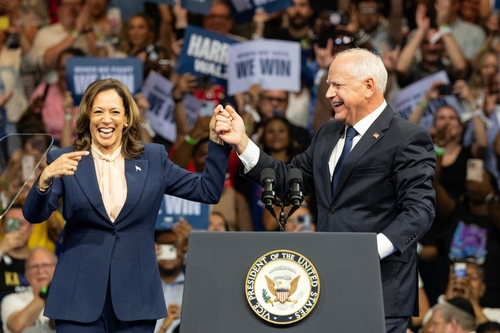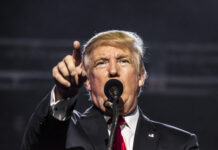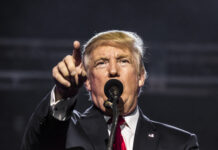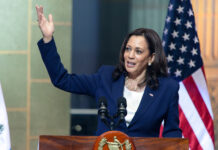
Vice President Kamala Harris has sparked a significant backlash with her recent proposal to impose federal price controls, a move she claims is necessary to combat rising costs and protect American consumers from alleged corporate price gouging. The plan, which Harris unveiled as part of her 2024 presidential campaign, has been widely criticized by economists and policymakers alike, who argue that it reflects a deep misunderstanding of basic economic principles and could lead to severe unintended consequences.
Harris’s proposal includes the introduction of the first-ever federal ban on price gouging in the food sector, a policy she argues is essential for curbing the soaring grocery prices that have burdened American families. However, this initiative has been met with harsh criticism from experts who describe the plan as not only misguided but "stupid" in its potential effects on the economy. Many argue that the root causes of inflation, which Harris aims to address with price controls, are far more complex than corporate greed, pointing instead to the significant role of government policies in driving up prices.
Here's your summary of Kamala's speech on the economy:
1) "Our country has come a long way since Biden and I took office"
2) "The price of food is up 50% today than it was four years ago."
3) "Home ownership is out of reach for far too many American families."
4) "I will chart a… pic.twitter.com/1FYxUz9nw3— Greg Price (@greg_price11) August 16, 2024
The backlash against Harris's proposal isn't limited to conservative circles. Even some left-leaning economists have voiced concerns, noting that price controls historically lead to market distortions, shortages, and black markets. A notable example often cited is President Richard Nixon's failed price controls in the 1970s, which resulted in widespread economic disruptions. Harris’s plan, critics argue, could easily lead to similar outcomes, where government interference disrupts the natural balance of supply and demand, leading to empty shelves and reduced quality of goods.
Economic scholars have pointed out that price controls rarely work as intended and often exacerbate the very problems they aim to solve. Christopher J. Neely, an economist with the Federal Reserve Bank of St. Louis, highlighted that such measures have been historically ineffective, dating back to ancient times.
BREAKING: Don Lemon went to the DEEP-BLUE state of New Jersey, and almost every voter he spoke to said they were voting for Trump 😂😂
One guy LAUGHED IN HIS FACE when he tried to claim the economy is better under Kamala Harris than it was under Trump
THIS IS GOLD!!!
If this… pic.twitter.com/pb96fFlprO
— George (@BehizyTweets) August 17, 2024
Price controls interfere with the market's ability to allocate resources efficiently, which can lead to lower production and, ultimately, scarcity. This is particularly concerning in the context of essential goods like food, where any reduction in supply could have serious consequences for American families.
Moreover, the proposal has been criticized for its potential to mislead the public about the true causes of inflation. While Harris has placed the blame squarely on corporations, many economists argue that government policies, including massive fiscal stimulus and expansive monetary policy, are the primary drivers of the current inflationary environment. By focusing on price controls, Harris is accused of offering a politically convenient but economically unsound solution that could do more harm than good.
Even publications traditionally supportive of Democratic policies have expressed skepticism about Harris’s plan. The Washington Post editorial board, for instance, questioned the viability of her approach, noting the lack of clear definitions for key terms like "excessive profits" and warning that such a strategy could backfire politically as well as economically.
In conclusion, Harris’s proposal for federal price controls is being widely criticized as both economically unsound and politically risky. As her campaign moves forward, it remains to be seen whether she will adjust her approach in response to these criticisms, or double down on what many see as a "stupid" and potentially disastrous economic policy.












